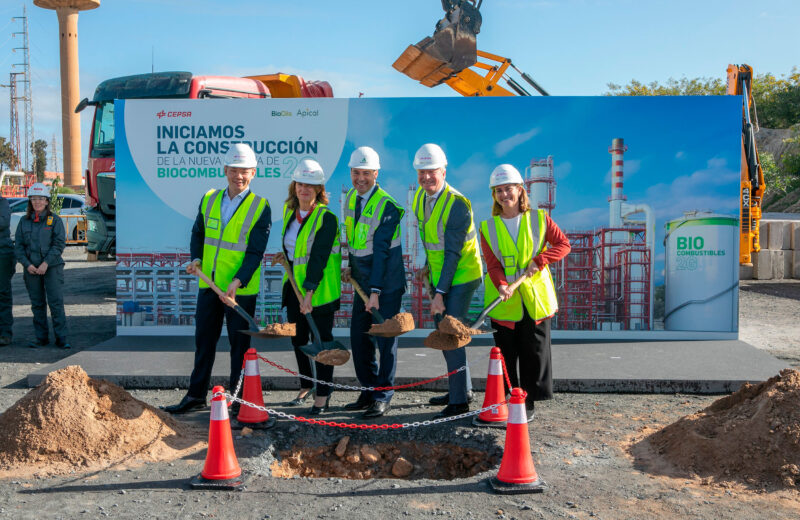Cepsa, Bio-Oils begin construction 2G biofuels plant

Cepsa and Bio-Oils announced that they started construction of the largest second-generation biofuels plant in southern Europe with the potential to produce 500,000 tons of sustainable aviation fuel (SAF) and renewable diesel (HVO) annually.
The new facility, scheduled to begin production in 2026, will be built in Huelva with an investment of €1.2bn.
“This is the start of a new chapter for Cepsa and this region that will generate quality employment and a new era of industrialisation. This strategic project for Spain and Andalusia will make us a European benchmark in the field of green molecules and facilitate the immediate decarbonisation of sectors that cannot run on electrons, like aviation,” said Maarten Wetselaar, CEO, Cepsa.
The joint venture will allow the two companies to double its current production capacity.
The 2G biofuels plant, along with the existing facilities operated by Cepsa and Bio-Oils in Huelva, Spain, will form the second largest renewable fuel complex in Europe, with a total production capacity of 1m tons per annum.
The plant will be built with the latest technology for the production of renewable fuels with a minimal environmental impact owing to consumption of renewable hydrogen, 100% renewable electricity and different heat recovery and energy efficiency systems.
In addition to SAF and HVO, the plant will also produce biogas, a fundamental raw material for the production of green hydrogen.
Cepsa is planning to lead 2G biofuel production in Spain and Portugal. The company is developing an annual production capacity of 2.5m tons of biofuels this decade, of which 800,000 tons will be SAF.
Last year it became the first company to permanently offer SAF (produced in its facilities from agricultural waste and used cooking oils) at five of Spain’s main airports: Madrid, Barcelona, Palma de Mallorca, Seville and Malaga.
